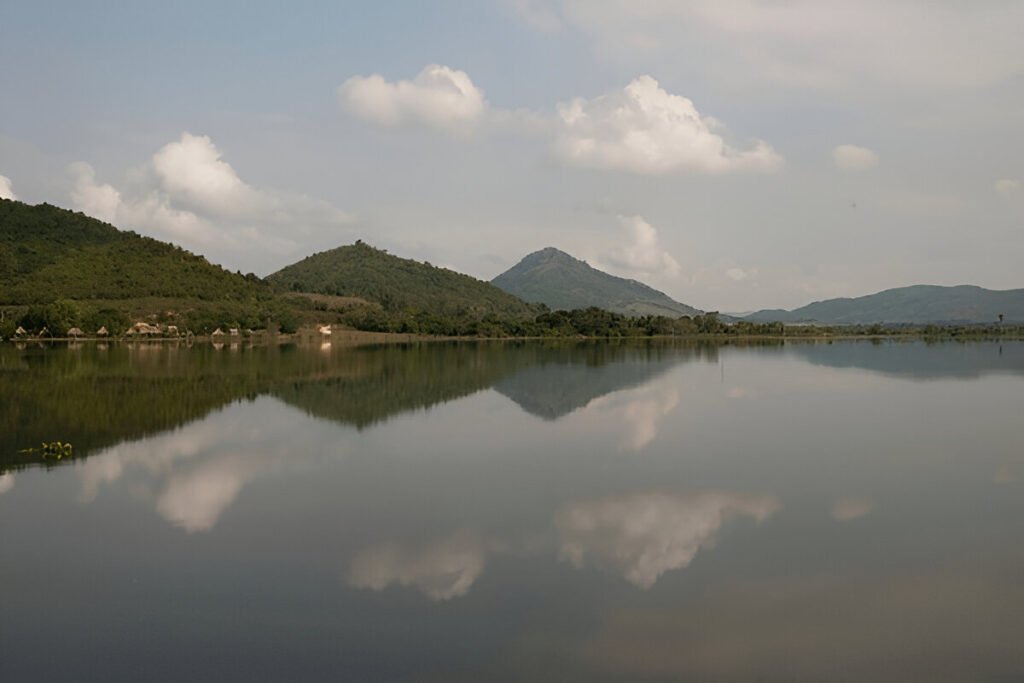Introduction:
Nestled in the heart of Hiroshima, Japan, lies the Hiroshima Peace Memorial Park, a poignant symbol of the city’s tragic past and its remarkable resilience. This historically significant site serves as a visual reminder of the devastating atomic bombing during World War II, calling for peace and a world devoid of nuclear weapons. The park, with its lush green spaces, tranquil ponds and iconic memorials, offers a quiet place for reflection on the past, making it a must-see destination for anyone visiting Japan.
Journey through Time: Discovering Hiroshima Peace Memorial Park
As you step into the Hiroshima Peace Memorial Park, you might find it hard to believe that this serene park was once ground zero for the atomic bombing in 1945. The park is spread over an expansive area of approximately 120,000 square meters, housing multiple monuments, each carrying a profound message of peace and remembrance. The most iconic structure, the Genbaku Dome, also known as the A-Bomb Dome, is a stark reminder of that fateful day. With its partially destroyed structure left as it was after the bombing, the dome has been a UNESCO World Heritage site since 1996.
Submerging further in the park, the Peace Memorial Museum provides a haunting yet educational journey through the events of the bombing. The museum’s exhibits are a touching collection of items belonged to victims, detailed timelines, and personal stories. The Children’s Peace Monument, another notable feature of the park, is a tribute to Sadako Sasaki and thousands of child victims. Bearing the inscription, “This is our cry, this is our prayer; for building peace in this world”, it is a testament to the innocent lives lost and the future generations who bear the responsibilities of peace.
Embrace Peace and Resilience at Japan’s Iconic Historical Site
Walking through the Hiroshima Peace Memorial Park instills a sense of gratitude for peace and an understanding of the horrifying consequences of war. Visitors can engage in quiet reflection, write their wishes for peace on colorful origami cranes, or simply sit by the park’s tranquil ponds. Every year on August 6, Hiroshima observes the peace memorial ceremony, where numerous paper lanterns are floated down the Motoyasu River in memory of the atomic bomb victims. This lantern floating event, known as Toro Nagashi, is a sight to behold, transforming the river into a glowing stream of peace messages.
The park also highlights Hiroshima’s remarkable recovery and resilience. The Phoenix Trees, which survived the blast and continue to bloom each year, are a testament to the city’s rebirth. Nearby, the Peace Bell, designed by Masahiko Katori, is an invite for visitors to ring it, its sound resonating a prayer for world peace. Across the river, the cityscape of modern Hiroshima stands, juxtaposing the historical park, a testimony of the city’s determination to rise from the ashes and move towards a future of peace and prosperity.
Conclusion:
Visiting Hiroshima Peace Memorial Park is more than just sightseeing; it’s a journey through history, a tribute to the resilience of human spirit, and a lesson on the value of peace. It invites you to reflect, learn, and participate in the shared global responsibility for peace. Whether you are moved by the poignant Children’s Peace Monument, inspired by the city’s recovery, or touched by the silent prayers floating down the river, a visit to this iconic peace site is an experience that will stay with you long after you’ve left.





